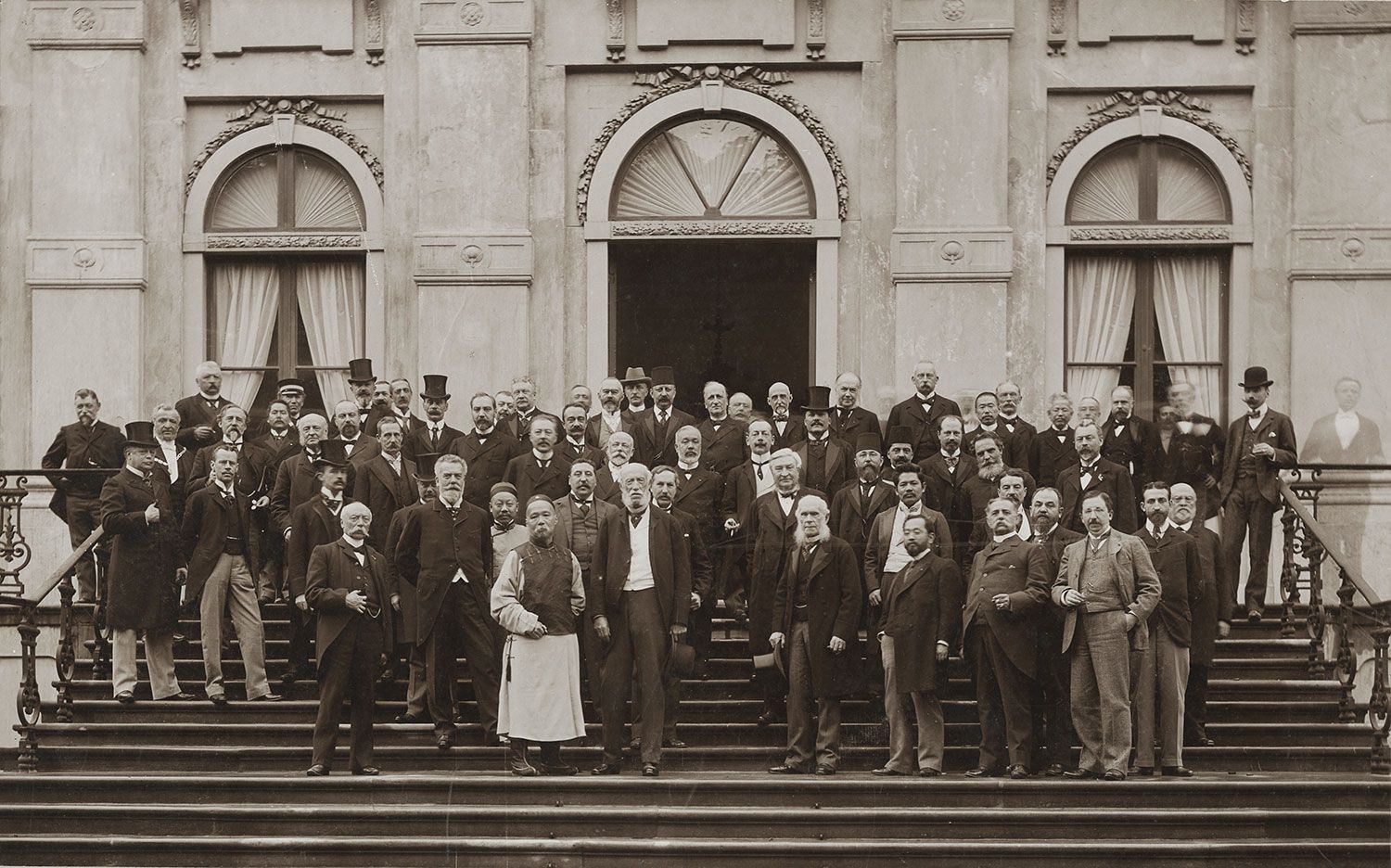The Hague is famous throughout the world as a beacon of international law. It is a city where justice is done in order to safeguard international peace, to deal with those who have endangered the peace, and to resolve inter-state disputes by peaceful means. This law has its roots in the 16th century, when Hugo Grotius became caught up in a political conflict.
The first international peace conference in The Hague
At the First Hague Peace Conference in 1899, 26 countries from around the world met to discuss disarmament and international jurisdiction for the first time. These days, The Hague is known as the ‘City of Peace and Justice’ thanks to the many organisations that have since established themselves in the city; they include the Peace Palace, the International Court of Justice and the International Criminal Court. But people were already thinking about international peace agreements many centuries ago.
A 16th-century pioneer in international peace-making
One of the founders of international law was Hugo Grotius. In the 16th century, he oversaw the Prison Gate as judge-advocate for the Court of Holland. His drive to promote international agreements on war and peace stemmed from his experiences at the Court of Holland, and later he himself became a political prisoner in Loevestein Castle. This made him all the more critical of those sovereigns and regents who put their interest in waging war above the people’s interest in peace.
'The slogan of the Dutch national committee to commemorate the victims of war, ‘never again’, could have been written by him.'
What is permissible and what is impermissible in times of war?
In the years following his incarceration, Grotius published his book On the Law of War and Peace (1625). It was an overnight success. Since then, more than 100 editions have been published in many languages, including Russian and Chinese. In his book, Hugo Grotius discussed questions that remain topical today, such as: what is war? What is law? Who has the right to wage war and when? What is permissible and what is impermissible in times of war? It was his deep-rooted conviction that everyone benefits from peace. For this reason, all nations should have an internationally-recognised right to peace, and there should be rules about when war might nevertheless be waged. There should also be a supra-national organisation to manage issues as part of international law, such as the modern International Court of Justice in The Hague. Hugo Grotius is now regarded as the founder of international law.
